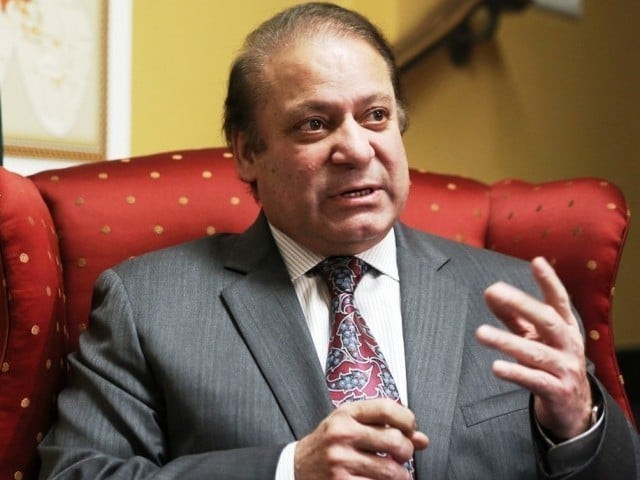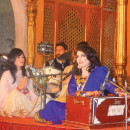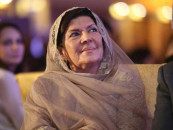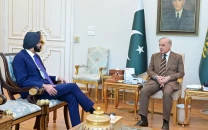PM tells aides to prepare vote reforms agenda
The prime minister has already empowered the reforms panel to go for a new constitutional amendment, if necessary

PHOTO: AFP
The PML-N team comprises cabinet ministers who will assist the parliamentary committee on electoral reforms to finalise its draft which will be tabled in the shape of legislation before parliament within the next two months.
“Prime Minister Nawaz Sharif has asked Finance Minister Ishaq Dar to finalise electoral reforms agenda at the earliest,” Planning and Development Minister Ahsan Iqbal told The Express Tribune on Sunday.

According to a cabinet member, federal ministers including Ishaq Dar, Ahsan Iqbal, Information Minister Pervaiz Rashid, Science and Technology Minister Anusha Rehman, State Minister for Interior Baleeghur Rehman and Parliamentary Affairs Minister Sheikh Aftab have been given the task of executing the plan.
Read: Flood devastation: PM vows to mobilise all resources for relief
“The prime minister has already empowered the reforms panel to go for a new constitutional amendment, if necessary, for establishing a better electoral system,” he added.
Senator Tahir Mashhadi of the Muttahida Qaumi Movement said the parliamentary reforms committee is scheduled to meet tomorrow (Tuesday) at the Parliament House to give the finishing touches to its recommendations.
“We are giving the finishing touches to our recommendations. We only wait for Pakistan Tehreek-e-Insaf (PTI) to come in and give their valuable input on electoral reforms,” said Mashhadi, who is a key member of electoral reforms panel.
According to him, members of the committee have already studied the electoral laws of India and other developed democracies for drawing fruitful input. “The reforms committee has already prepared its recommendations in particular about notes, shortcomings, loopholes and errors pointed out by the inquiry commission in its findings,” he added.
The National Assembly is also likely to take up this issue today (Monday) and will link it with findings of the inquiry commission’s report, said lawmakers across the party lines.
Ahsan Iqbal thinks the report’s findings can be debated in parliament. “There is no harm in debating the report in parliament because it had passed a unanimous resolution against ‘dharnas’,” he said.
Pakistan Peoples Party’s Senator Farhatullah Babar said: “We now need to move on. The first and foremost thing for parliamentary committee is to prepare its consensus recommendations for electoral reforms and then for parliament to do legislation.”
Read: PM Nawaz, Army chief discuss Operation Zarb-e-Azb
He said the inquiry commission’s report should be debated in the parliament as an academic exercise to illuminate the path that lies ahead.
When contacted the PTI MNA Dr Arif Alvi said he was going to attend the session. “Findings of the commission must be discussed in parliament particularly with focus on electoral reforms,” he said.
Already PTI chief Imran Khan has announced that his party’s lawmakers would participate in parliamentary proceedings to strengthen the democratic process.
Published in The Express Tribune, July 27th, 2015.



















COMMENTS
Comments are moderated and generally will be posted if they are on-topic and not abusive.
For more information, please see our Comments FAQ